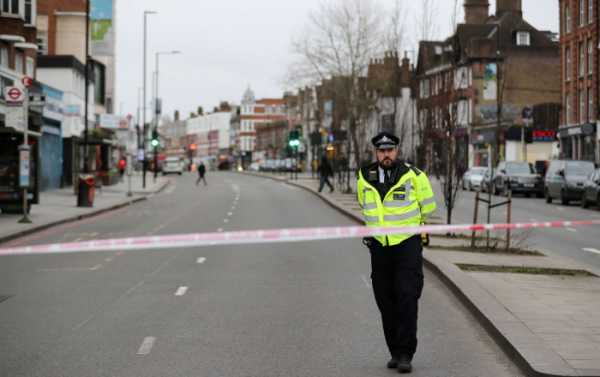
Two recent stabbing attacks have prompted the UK government to reconsider sentencing and prison terms for those accused of terrorism. Two British security experts have explained how terror offenders were released after serving just half their sentence.
On 3 February, UK Prime Minister Boris Johnson reiterated his vow to toughen rules for convicted terrorists, preventing them from early prison release in the aftermath of a Sunday stabbing spree in Streatham, south London, which left three people injured.
The knife attack committed by Sudesh Amman, who served half of his sentence in 2018 for “Islamist-related terrorism offences” and had been freed shortly before the Streatham violent act, followed the London Bridge assault in November 2019 conducted by convicted terrorist Usman Khan, released from prison on licence in December 2018.
Why UK Needs Terror-Specific Sentencing Laws
On 21 January, the British government announced new measures envisaging tougher sentencing and an end to early release for convicted terrorists. Being confirmed by Home Secretary Priti Patel and Justice Secretary Robert Buckland QC, the new Counter-Terrorism Bill, which is expected to be introduced in the first 100 days of the Johnson government, will:
· “force dangerous terrorist offenders who receive extended determinate sentences to serve the whole time behind bars”;
· “ensure those convicted of serious offences such as preparing acts of terrorism or directing a terrorist organisation spend a mandatory minimum of 14 years in prison”;
· “overhaul the terrorist licensing regime, doubling the number of specialist counter-terrorism probation officers and introducing measures such as polygraph testing”, according to the government website.
Dr David Lowe, a senior research fellow at Leeds Beckett University’s Law School, who runs a consultancy business in terrorism and security, explains that the issue preventing British authorities from keeping dangerous convicts behind bars to serve their full sentence is related to the scrapping of Imprisonment for Public Protection orders (IPP) in 2013.

UK Police Officer in Streatham, South London
The researcher points out that the Criminal Justice and Immigration Act 2008 removed the parole board process. However, it still allowed judges to deliver life sentences or IPP’s for dangerous offenders until IPP’s were eventually scrapped with the introduction of the Legal Aid, Sentencing and Punishment of Offenders Act of 2012, Lowe adds.
“Although it [2012 Act] reintroduced the role of the parole board, in essence the Act virtually made it compulsory that the likes of terrorist prisoner be released after serving half of their sentence”, the scholar stresses. “It is the 2012 Act that the authorities still have to follow and it is legislation the current UK government is looking to repeal”.
According to the researcher, it is the London Bridge attack and the Streatham stabbing spree committed by individuals being imprisoned for terrorism-related offences and released at the half-way point of their sentence “that has brought this issue of concern to a wider audience”.
Philip Ingram, a former British senior intelligence and security officer, echoes Lowe by saying that while “terrorism crimes and terrorist-related offences are subject to the criminal justice system in the same way as all other crimes”, they are usually driven by a completely different incentive.
Although a number of pieces of British legislation effectively allow all prisoners to be automatically released on license completing half their sentence, “those prison regimes are designed to deal with criminals and not necessarily terrorists with different motivations and goals”, Ingram highlights.
The views and opinions expressed in the article do not necessarily reflect those of Sputnik.
Sourse: sputniknews.com






